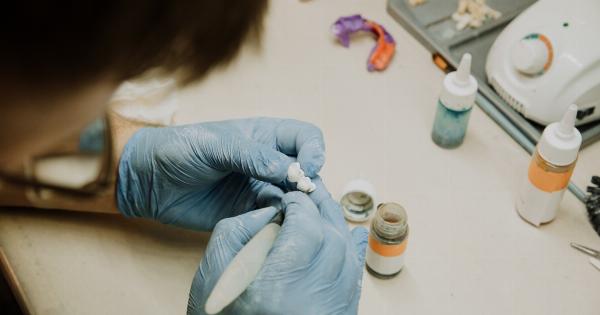When it comes to managing our health, medications play a crucial role. From pain relief to chronic disease management, we rely on these drugs to help us feel better and maintain our well-being.
However, there is a fruit that may put as many as 85 medications at risk of reduced effectiveness or even dangerous side effects. This fruit, widely consumed around the world, interacts with various drugs and poses a significant threat to the safe and optimal use of medications.
Understanding Drug Interactions
Before delving deeper into this fruit’s interactions with medications, it is important to understand what drug interactions entail.
A drug interaction occurs when a substance, such as a medication or a food, affects the way a drug works in the body. This can lead to unpredictable effects, ranging from decreased effectiveness to increased toxicity.
Drug interactions are present in many forms. Some substances can alter the absorption, distribution, metabolism, or elimination of drugs, while others can directly interact with the drug’s molecular structure.
The fruit we will discuss falls into the category of altering drug metabolism, potentially rendering medications ineffective or even harmful.
The Culprit: Grapefruit
Grapefruit, a tangy and refreshing citrus fruit enjoyed by many, is the main offender when it comes to this particular class of drug interactions.
While it may seem harmless, grapefruit, as well as its juice, can interfere with the activity of certain enzymes in the body responsible for drug metabolism.
Metabolism is the process by which drugs are broken down and eliminated from the body. Grapefruit contains compounds known as furanocoumarins, which inhibit the activity of an enzyme called cytochrome P450 3A4 (CYP3A4).
This enzyme is responsible for metabolizing a significant number of medications, including but not limited to:.
- Statins – Medications for high cholesterol
- Antihistamines – Allergy medications
- Calcium channel blockers – Used to treat high blood pressure and various heart conditions
- Immunosuppressants – Medications prescribed after organ transplantation
- Antidepressants – Drugs used to manage depression and anxiety
Impact on Medication Effectiveness
By inhibiting CYP3A4, grapefruit can significantly reduce the metabolism of these medications. As a result, higher levels of the drug accumulate in the body, leading to an increased risk of side effects and toxicity.
On the other hand, reduced metabolism means the drug may not reach adequate levels to exert its therapeutic effects.
This interaction is particularly concerning when it comes to medications with a narrow therapeutic index. Drugs with a narrow therapeutic index have a small margin between the therapeutic dose and the toxic dose.
Even minor changes in blood levels can push these medications from being effective to potentially dangerous. Examples of drugs with a narrow therapeutic index include:.
- Warfarin – Blood thinner
- Cyclosporine – Immunosuppressant
- Carbamazepine – Anticonvulsant
Grapefruit consumption can lead to elevated blood levels of these drugs, increasing the risk of bleeding, organ damage, and other severe side effects.
The Mechanism behind the Interaction
To better understand the mechanism behind the grapefruit-drug interaction, it is essential to dive into the metabolism of medications. Most drugs are metabolized in the liver, primarily through the cytochrome P450 enzyme system.
This system consists of multiple enzymes responsible for breaking down various substances, including medications.
When a drug enters the body, it goes through absorption, distribution, metabolism, and elimination phases. During the metabolism phase, the drug’s molecular structure undergoes chemical modifications that facilitate its elimination from the body.
Cytochrome P450 enzymes, including CYP3A4, play a critical role in this phase.
However, grapefruit contains compounds that inhibit CYP3A4. These compounds interfere with the enzyme’s activity, leading to decreased drug metabolism.
Consequently, the drug remains in the body for longer periods, prolonging its effects and potential side effects.
Other Citrus Fruits and Drug Interactions
While grapefruit is the most widely studied fruit in terms of drug interactions, it is not the only citrus fruit that can pose risks.
Other citrus fruits, such as Seville oranges, limes, and pomelos, also contain furanocoumarins and can inhibit CYP3A4 to varying degrees.
Although the interactions may not be as significant as those observed with grapefruit, it is advisable to exercise caution when consuming these fruits alongside medications.
Consulting a healthcare professional or pharmacist is crucial to understand the potential risks associated with specific medications.
Managing the Interaction
Despite the potential risks, avoiding grapefruit or other citrus fruits does not have to be a permanent sacrifice.
By being aware of these interactions and taking appropriate measures, it is possible to continue enjoying the benefits of these fruits while safely taking medications.
If you are taking a medication known to interact with grapefruit, consider the following:.
- Talk to your healthcare provider or pharmacist about the specific medications you are taking and whether grapefruit or other citrus fruits should be avoided.
- Read medication labels and package inserts carefully to check for any warnings regarding grapefruit or fruit juice interactions.
- When in doubt, opt for an alternative fruit or fruit juice that does not pose similar risks.
- If grapefruit or citrus fruits are an essential part of your diet, discuss potential medication alternatives with your healthcare provider. They may be able to prescribe medications that are not affected by the fruit’s interactions.
- Consider separating the timing of medication intake and grapefruit consumption. Taking the medication and consuming the fruit at least a few hours apart can minimize the interaction.
- Remember that even small amounts of grapefruit or citrus fruit can trigger the interaction, so avoid assuming that consuming less will eliminate the risk.
Conclusion
Grapefruit, the seemingly innocent fruit enjoyed by many, can have a significant impact on the effectiveness and safety of certain medications.
By inhibiting a crucial drug-metabolizing enzyme in the liver, grapefruit interactions can lead to unexpected side effects or reduced therapeutic effects. It is vital for healthcare professionals, pharmacists, and patients themselves to be aware of this interaction and take appropriate measures to ensure optimal medication management.
By understanding the risks and following the recommended guidelines, individuals can continue to prioritize their health without compromising their enjoyment of fruits like grapefruit.






























